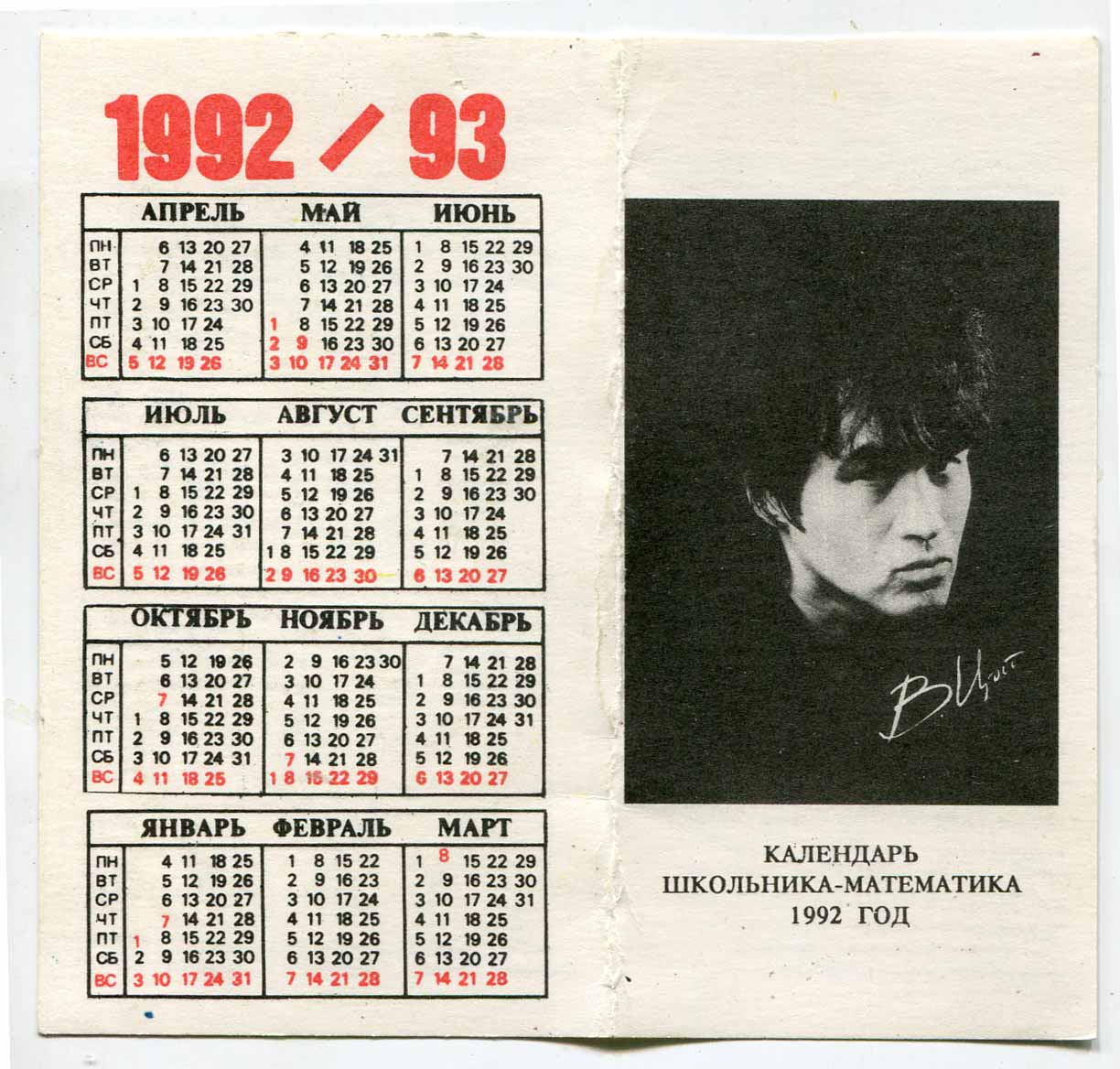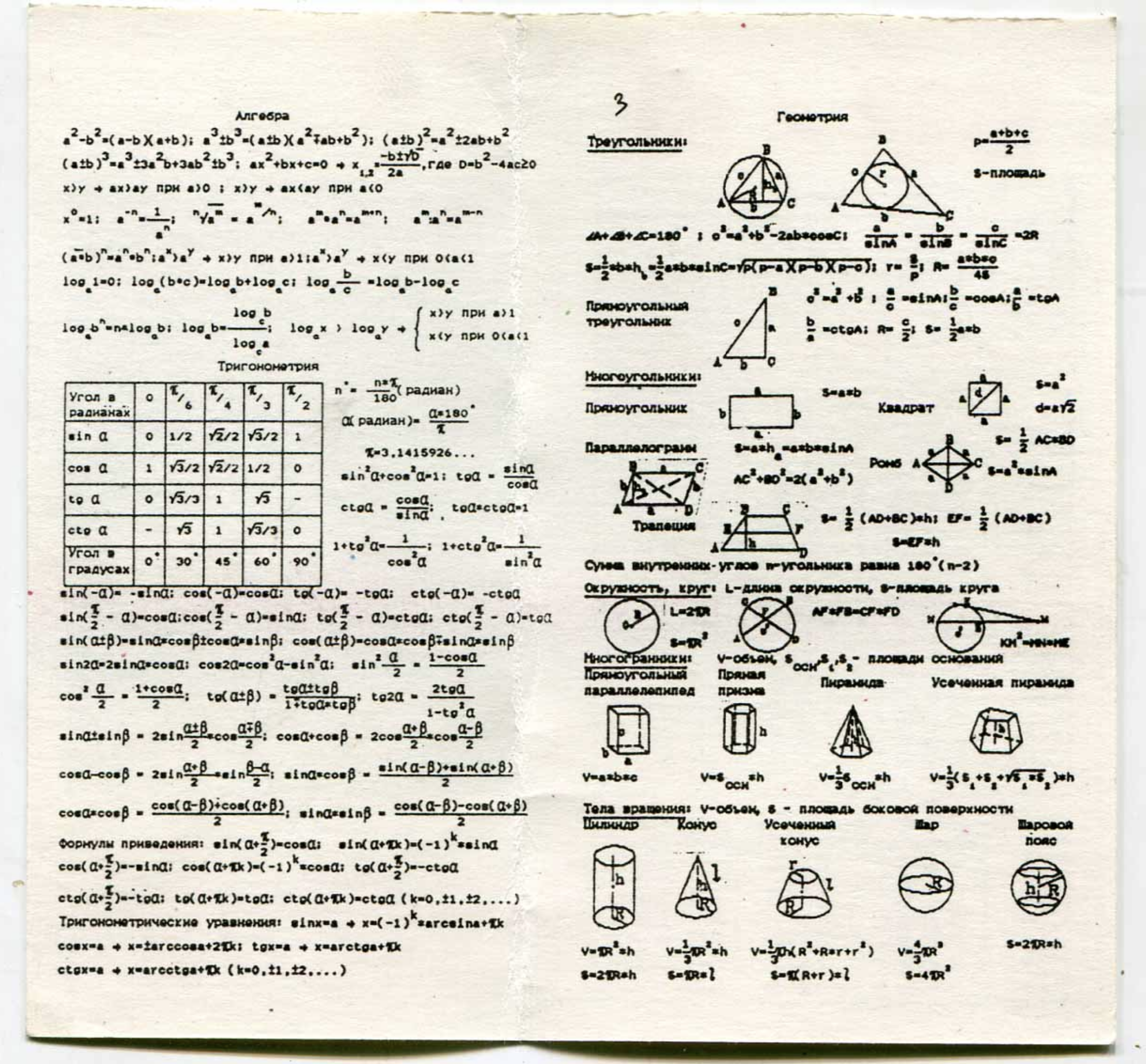Filed Under: Material culture > Arts or design > Viktor Tsoi-themed calendar for 1992-1993
Viktor Tsoi-themed calendar for 1992-1993
[2 items]
This 1992/ 1993 math calendar, with its Viktor Tsoi (1962-1990) theme, testifies to the domestication of rock music as a widespread influence on the everyday lives of newly post-Soviet citizens. Designed for schoolchildren working on key concepts in algebra and geometry, this object makes clear that public opinion on the position and status of rock musicians has shifted since the genre’s meteoric rise in popularity over the last years of the USSR’s existence. Whereas conservative elements in late-Soviet society had regarded these figures as ideologically nefarious loafers or “parasites,” by the early 1990s, they were in the minority. The same rockers who had aroused the ire of their elders just a few years earlier had now cemented their status as fallen heroes and approved teenage idols.
The calendar likely went into print roughly a year after Viktor Tsoi’s fatal car accident in August 1990, which transformed him from a hyper-popular musician to Russia’s ultimate rock icon. The Black Album (Chernyi Al’bom, 1991), Tsoi’s posthumous recording release with Kino, became the band’s most popular and lucrative album, selling over a million copies. It also became one of the first Soviet musical recordings to be released on an independent label without state sponsorship, earning the band’s producer and manager Yuri Aizenshpis (1945-2005) a profit in the historically unprecedented sum of 24 million rubles.
As a product intended for mass circulation among the country’s youngest consumers, this math calendar illustrates the vast commercial reach of late-Soviet pop culture marketing. The recently deceased Tsoi is here inscribed as an officially sanctioned role model for Russian youth. His tragic death is thus made into an emblem of the fading old regime—a kind of martyrdom to the stodgy and conservative past—even as his music completes its metamorphosis from underground, avant-garde creation to fully commercialized consumer product.

